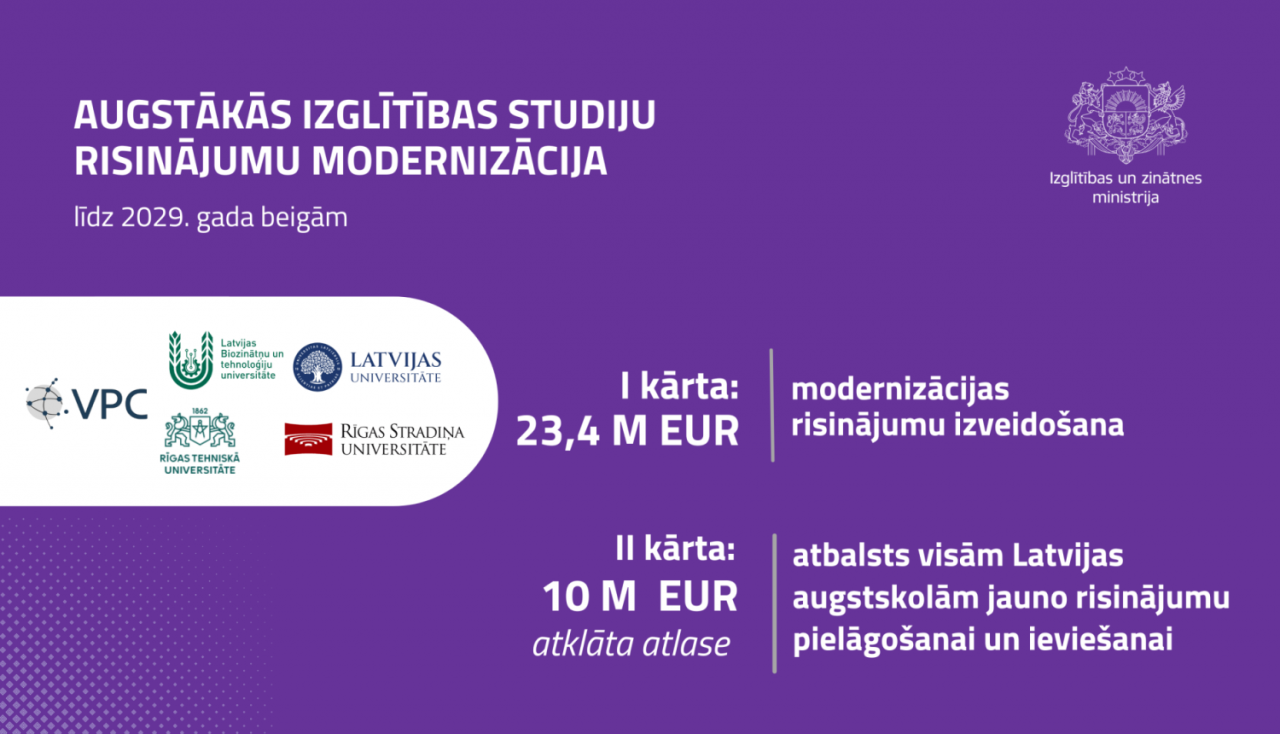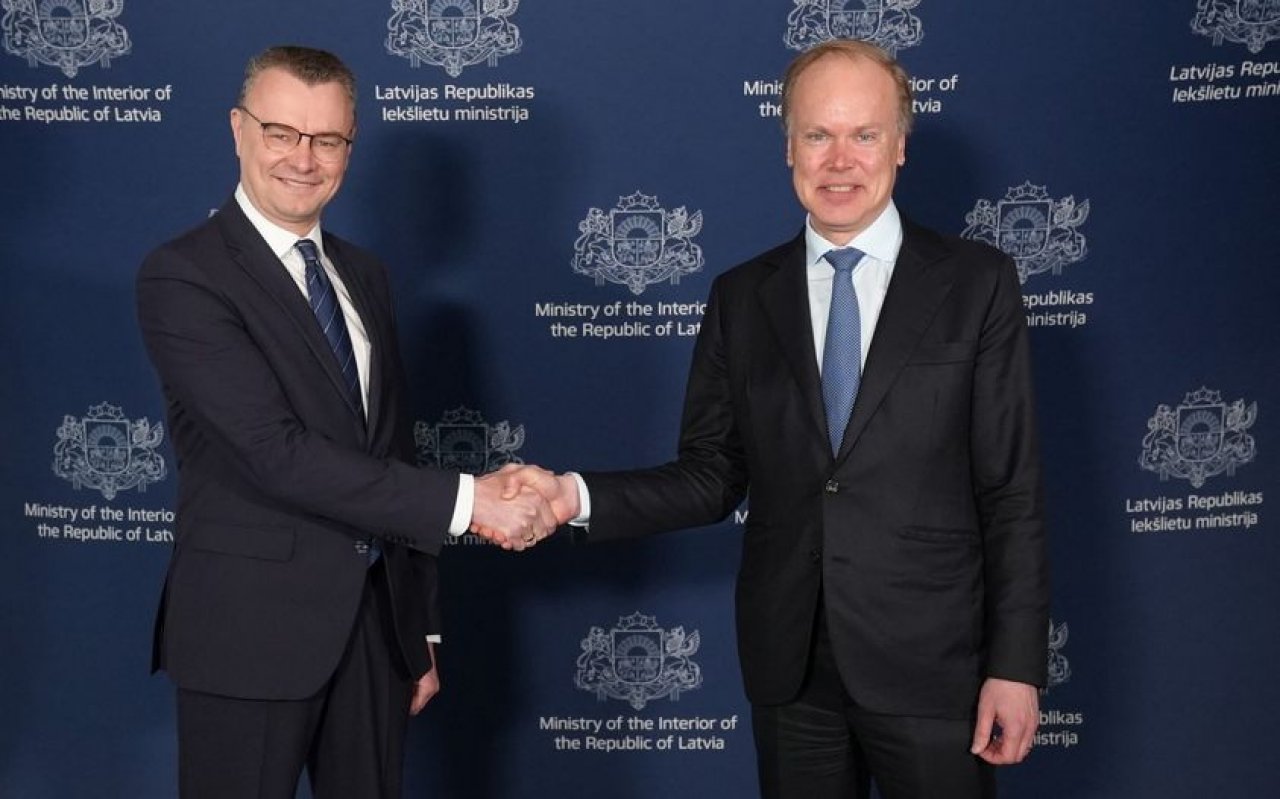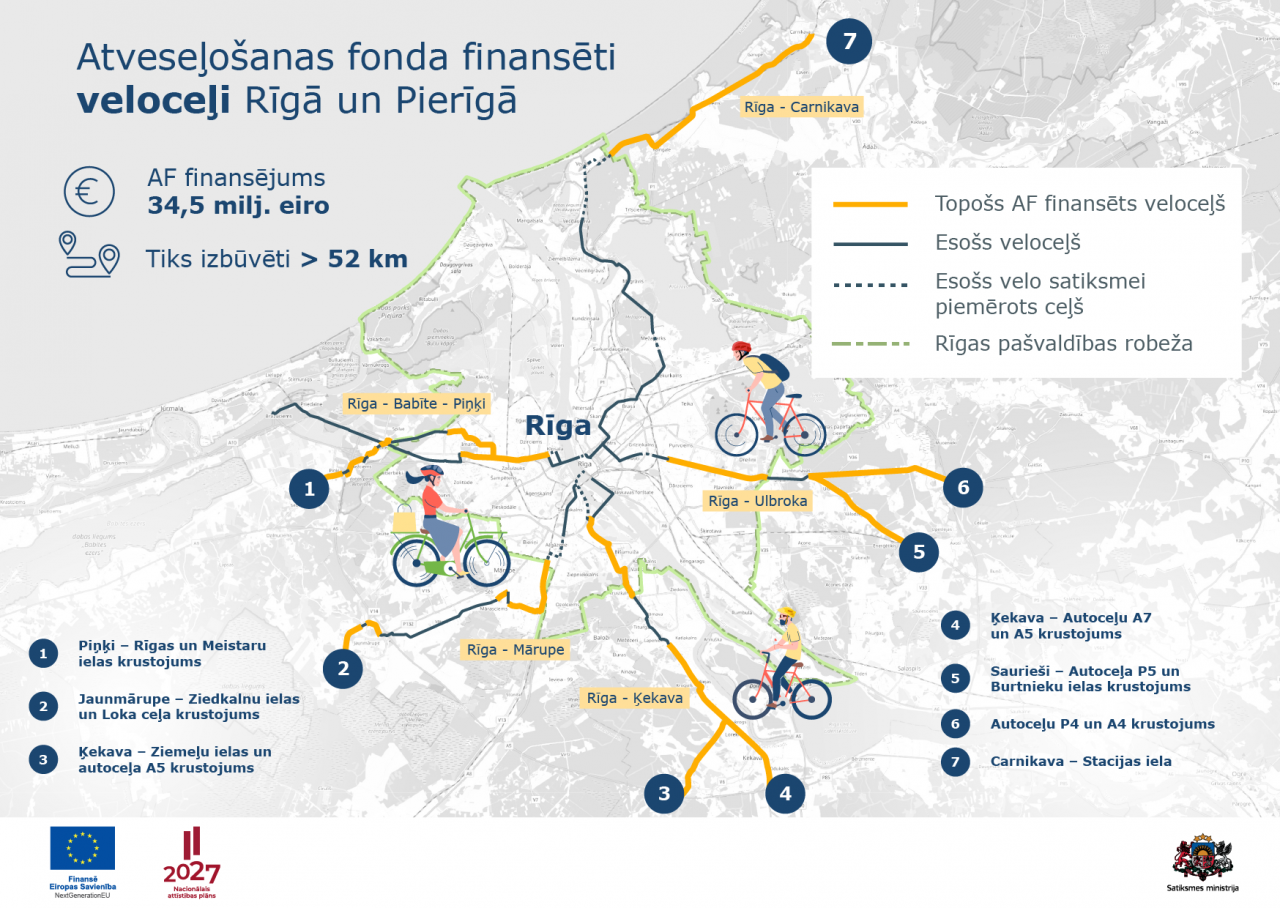By the end of 2029, Latvia will implement an ambitious digitalisation reform of the higher education study process. This was approved during the government meeting held on 27 May 2025. The project, initiated by the Ministry of Education and Science (MoES), aims to ensure a modern, flexible, and student-centred academic environment by introducing shared digital solutions. The initiative will be co-financed by the European Social Fund Plus (ESF+).
Minister of Education and Science, Dace Melbārde, emphasised:
“With this digitalisation project, we are adopting best practices from across Europe and adapting them to Latvia’s specific needs. The goal of the platform is to create a system that is more convenient, accessible, and effective for all users—students, academic staff, universities, and society as a whole. It represents a significant step towards a modern, inclusive, and forward-looking higher education system and lifelong learning.”
As stated at the MoES press conference, the modernisation will cover four study support systems: integrated digital resource and library management with extensive artificial intelligence support for search and content processing, modern student internship management, study process evaluation, and the management of personal data usage in student research. These solutions will ensure a more targeted and modern approach to education governance.
The implementation of this project will significantly improve the study experience and accessibility, offering students the opportunity to choose courses from different universities in Latvia and elsewhere in Europe, obtain micro-qualifications, and create an individually tailored study plan. As part of the digitalisation process, e-diplomas, student e-records, as well as unified internship management and digital library systems will be introduced, ensuring the implementation of “paperless” procedures. This will reduce the administrative burden on both students and university staff, while also enabling automatic data exchange between state institutions. Returning to studies will also become easier for adults, promoting lifelong learning and professional qualification development. It is expected that the introduction of shared systems will ensure more efficient use of public resources, reducing costs by 10–15% compared to individually developed solutions.
The measure will be implemented in two phases, with a total funding of EUR 33.4 million, of which 85% is provided by the European Social Fund Plus. In the first phase, the development and implementation will be carried out by the Unified Service Centre (USC), formed by four research universities—University of Latvia, Riga Stradiņš University, Latvia University of Life Sciences and Technologies, and Riga Technical University. The USC's goal is to develop and advance innovative, shared digital solutions that promote the growth of the entire higher education system. The students represented by these four universities make up more than 66% of the total number of students in Latvia, i.e., 49,200 students.
In the second phase (round), a grant programme will be announced with a total budget of EUR 10 million, intended for the implementation of new digital solutions in all public and private higher education institutions and colleges in Latvia. Funding will be available for both individually and jointly submitted projects, thus ensuring the consistent integration of digital innovation throughout the higher education system.
The MoES will provide funding for the project and will also be responsible for improving the regulatory framework, cooperating with the USC, and overseeing the project. This partnership will significantly modernise study-related services, while also strengthening the quality, sustainability, and international competitiveness of higher education in Latvia.
The project will be implemented from now until the end of 2029, by which time the digital systems will be introduced in all higher education institutions that enrol at least 80% of Latvia’s students.
The regulation project approved on 27.05.2025, titled "Implementation rules for measure 4.2.2.11 ‘Digitalisation of the Study Process’ under Specific Objective 4.2.2 of the European Union Cohesion Policy Programme 2021–2027 ‘To improve the quality, inclusiveness, effectiveness and labour market relevance of education and training systems, including through the validation of non-formal and informal learning, to support the acquisition of key competences, including entrepreneurial and digital skills, and to promote the introduction of dual learning systems and apprenticeships’” is available on the website of the Cabinet of Ministers.


